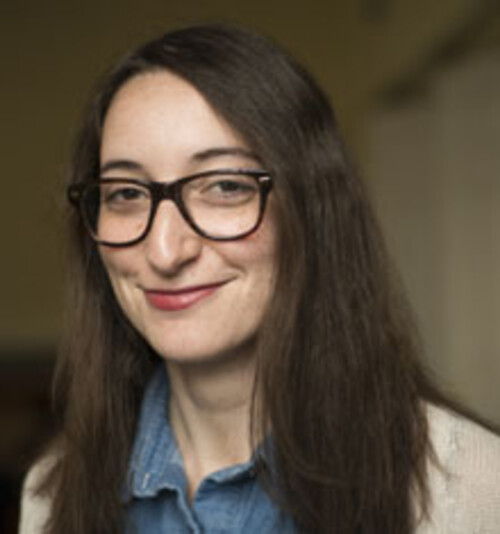Liz Maynes-Aminzade

Around the time that Liz Maynes-Aminzade was crafting a prospectus for her dissertation on nineteenth-century British literature, the last season of The Wire had just finished ushering in a new golden age of television on HBO. And she was hooked.
“I watched all five seasons in two weeks and started reading a lot of criticism and journalism about the show,” says Maynes-Aminzade. “Very quickly it became a critical commonplace to compare the show to either Dickens specifically or the Victorian novel more generally.”
Some connections were straightforward. The show has a large cast and focuses on social problems, as do novels by Charles Dickens and George Eliot. But her thinking since then has led to new insights into the formal elements of the Victorian narrative mode she calls “macrorealism,” as well as to a consideration of why macrorealism has experienced a recent resurgence in popularity.
“Ultimately, I attribute this phenomenon to an ethical anxiety that we share with the Victorians,” she says. “Namely, the fear that as the globe becomes more thoroughly interconnected, and as the division of labor becomes increasingly complex, we as individuals often become complicit — without even realizing it — in ethically dubious enterprises.” Macrorealism attempts to counter this by forcing readers and viewers to see the big picture — to trace connections and understand how their actions can affect people far away and sight unseen in a complex, global society.

